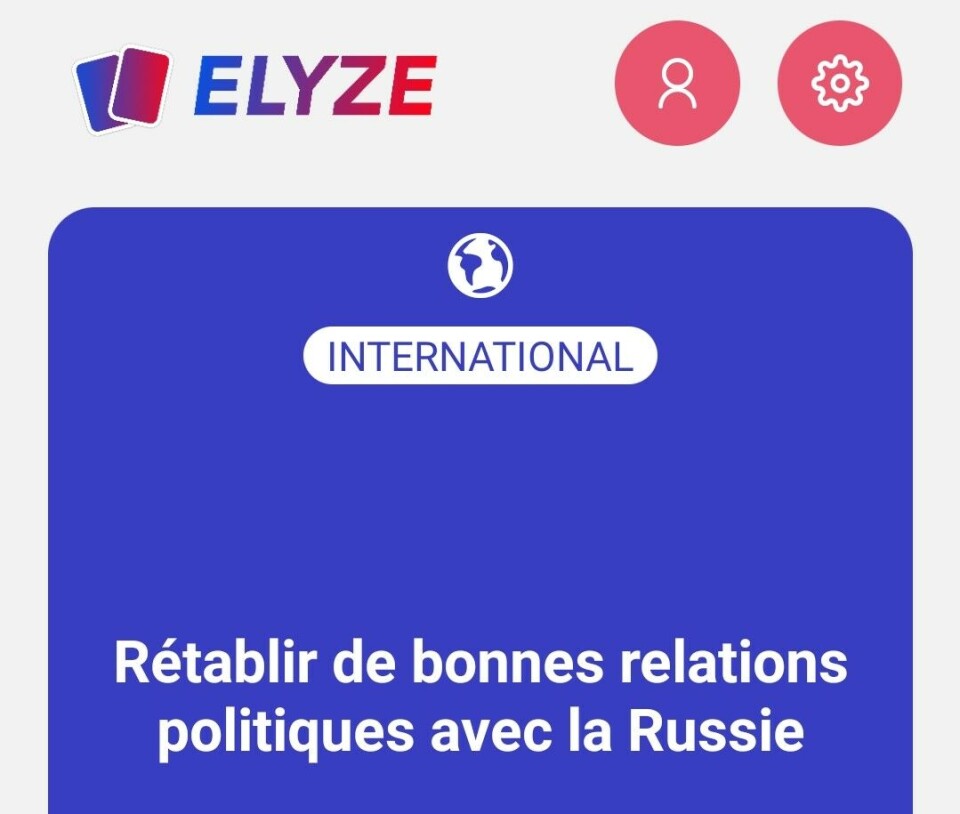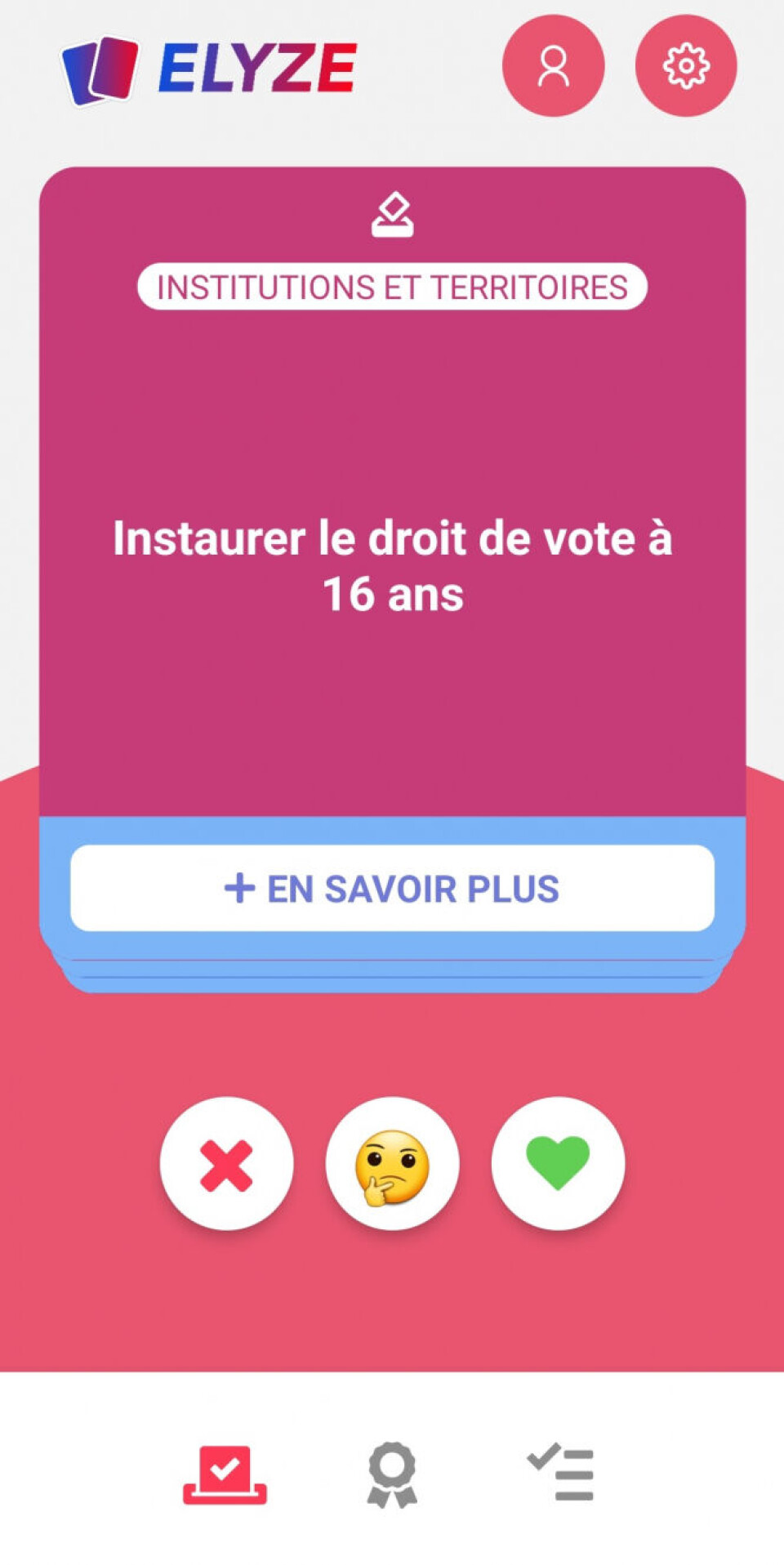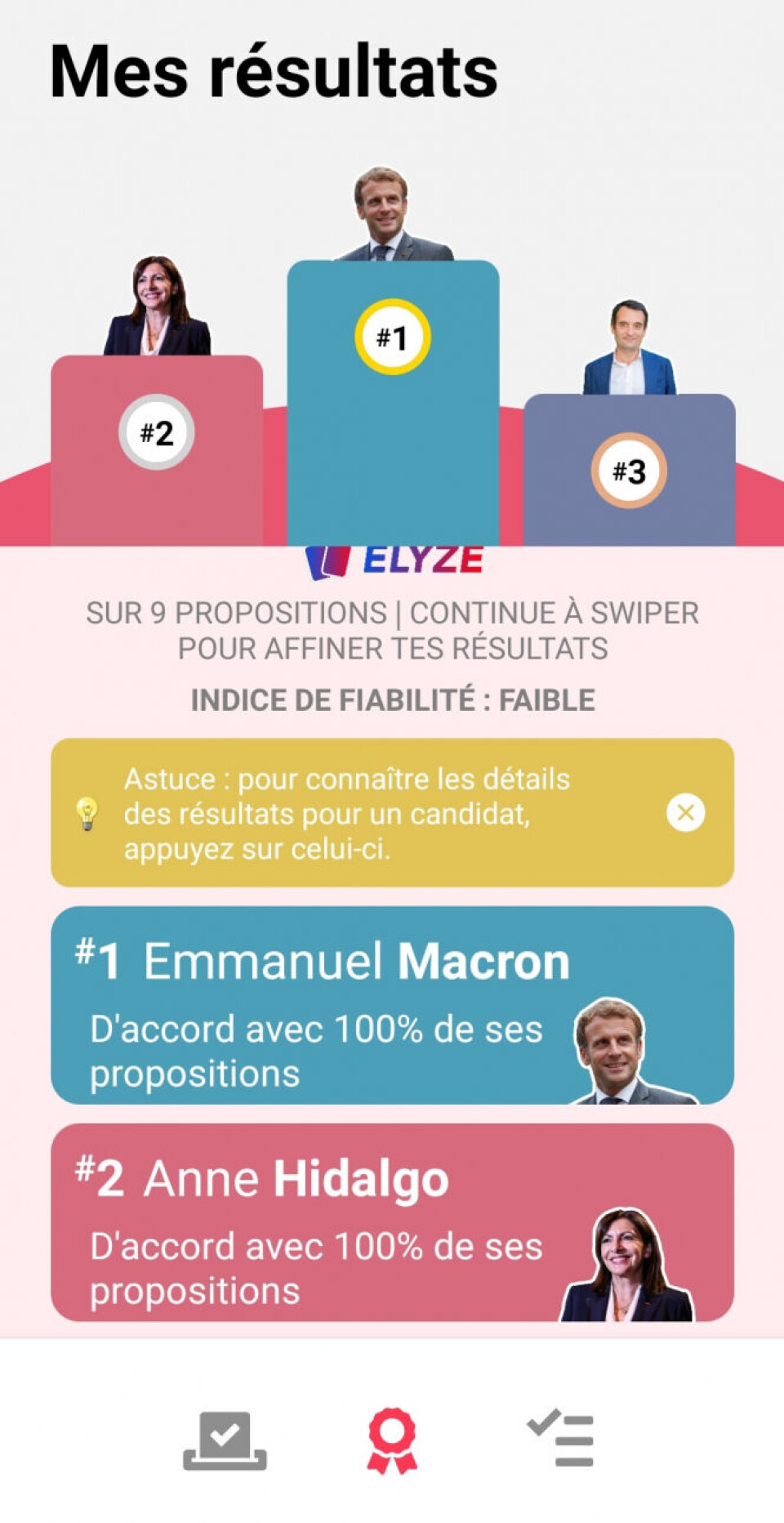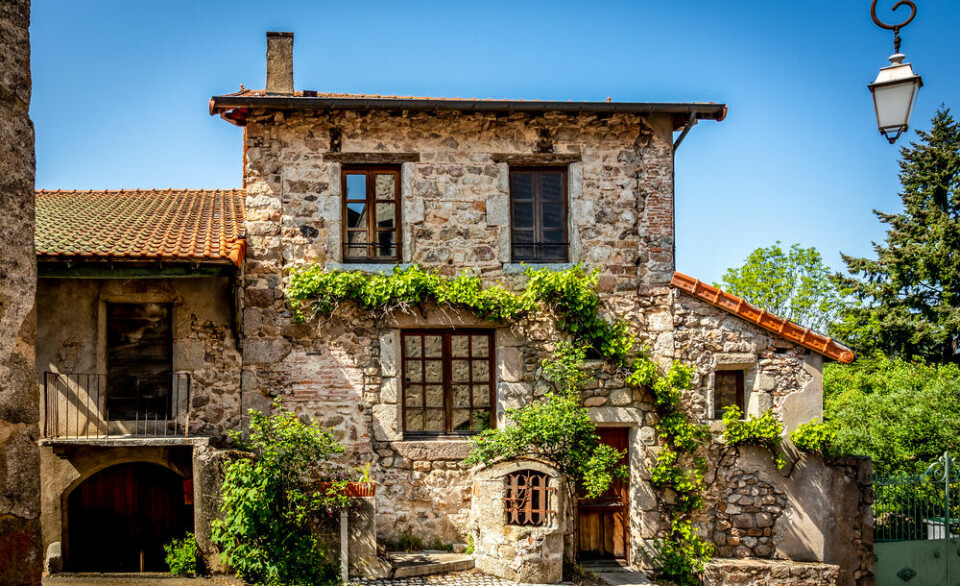-
Shop donations: Pays de la Loire and Corsica are France’s most generous regions
Almost €15 million was raised in 2025 via ‘round up’ donations at checkouts
-
Train passengers in Occitanie to be reimbursed over frequent delays and cancellations
See eligibility conditions and find out how refunds will be issued
-
Marine Le Pen appeal: Prosecutors call for election ban to be upheld
The court of appeal will return a decision before the summer, ahead of the 2027 elections
Tinder-style app matches user with ideal French presidential candidate
Elyze allows users to swipe left or right like with Tinder to agree or disagree with a series of policies. It is now the second-most popular free app in France

A Tinder-style new French phone application that matches users with the presidential candidate offering policies most similar to their own ideals has become the second most popular free app in France.
Elyze allows users to swipe left or right - as the popular dating app does - to agree or disagree with policies linked to 15 presidential candidates.
Based on the users’ answers, the app then suggests which three candidates best represent their political beliefs.
The app was designed by Grégoire Cazcarra and François Mari, both in their 20s, and launched on January 2.
It has now been downloaded over 100,000 times, making it the second [current] most popular free app in France behind government Covid app TousAntiCovid.
How it works
Once downloaded, users have the option of providing their age, gender and postcode. Once this step is completed (or skipped), users can jump straight in.
The app has a total of 500 propositions that are linked to 15 different presidential candidates. This includes current President Emmanuel Macron, who has not yet officially declared his candidacy but certainly will.
Policies are broken down into nine different themes, including the environment, economy, education, society and international.
Users will see a question pop up on their screen. For example, ‘should 16 year olds have the right to vote’. You can then swipe left to disagree, or right to agree.

Over time, an algorithm builds up a picture of the user’s preferences.
It then suggests the top three presidential candidates that correspond to the user’s political ideals.
The accuracy or reliability of the suggestion changes the more the user answers questions.
For example, after a user has responded to 90 proposals, the app offers roughly a 20% accuracy, in terms of how much the suggestion relates to the users’ preferred political candidate.
After 350 swipes, there is a 78% accuracy.

The proposals included in the app have been collected by the Elyze team, using the candidates’ social media channels, campaign sites and media interviews.
“They will be updated and enriched over time,” Mr Cazcarra said, Le Figaro reported.
“Users and the candidates’ campaign teams can let us know if there are any possible errors,” he said.
If you do not understand one of the proposals, there is the option to click for more information and then users can read a very short explanation.
Another feature of the app allows users to gain an insight into the 15 candidates, including their age, education, and hobbies.
For example, you can discover through the app the candidates’ favourite authors, TV shows and musicians.
Mr Macron’s favourite song, according to the app, is ‘L’envie d’avoir envie’ by Johnny Hallyday.
Mr Cazcarra said that the app makers worked hard to ensure that “no candidate is given preferential treatment”.
The app is currently only available in French.
Aimed at young people and first-time voters
The app is primarily aimed at young people and first-time voters to engage them with politics and the presidential election.
A recent poll from Ifop shows that over 50% of people aged 18-30 are not planning to vote in the April election.
Jules, an 18-year-old economics student, said he downloaded the app after hearing about it through word-of-mouth, and because of its simplicity.
“Today, young people are discouraged from reading long articles about candidates' programmes. With this application, it is easy to access and intuitive, it takes only a few seconds to understand each proposal,” he said.
Mr Cazcarra said he hoped to extend his tool to other elections, and said that "users' data will remain anonymous and optional, and will never be communicated to a campaign team, a political party.
France’s presidential elections
The first round of the 2022 French presidential election will be held on April 10, 2022. If no candidate wins a majority of the vote in the first round (this is almost always the case), a runoff will be held between the top two candidates on April 24, 2022.
Incumbent president Emmanuel Macron is the favourite to win re-election, while other candidates such as Marine Le Pen of far-right party Rassemblement National and Valérie Pécresse of right-wing party Les Républicains are currently polling as his closest competitors.
Related articles
French presidential candidate Zemmour: key points of heated TV debate
Right-wing Valérie Pécresse voted presidential candidate for 2022 run
When will we know candidates for 2022 French presidential election?
























